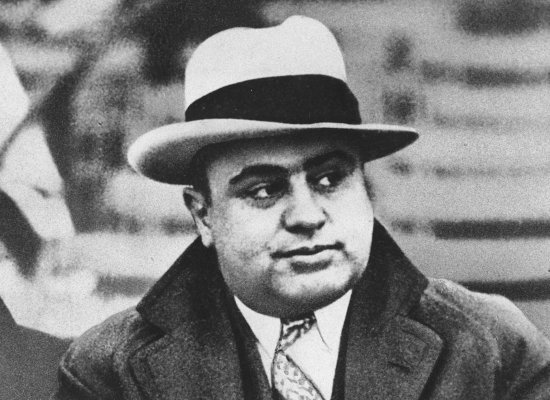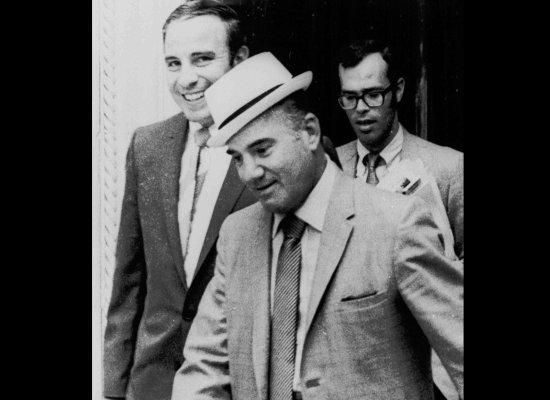The sex trial of Malaysian opposition leader Anwar Ibrahim has become a bore-fest for a worn-out audience, despite having all the makings of a highly charged scandal, full of sordid details of illicit dalliances, accusations of lies and conspiracies.
When Anwar, 63, was initially charged with sodomizing his 25-year-old male aide in 2008, local and international media were clamouring to get the details as an eager public soaked in what one paper called the scandal of the decade.
What heightened the interest was that it wasn’t the first time fingers were being pointed at Anwar, a married father of six and grandfather to two.
In 1998, Anwar was sacked as deputy prime minister and subsequently found guilty of sodomizing his former driver and using his position to cover it up. Even if consensual this sexual act is illegal in Malaysia.
He was jailed, but released six years later after a higher court overturned his convictions.
Ten years on and having become the leader of a strong opposition movement, Anwar now finds himself facing similar accusations.
He has maintained his innocence in both cases, and insists he is a victim of a political conspiracy. The government has denied any involvement.
But that’s where the similarities end.
While the highly publicized hearings in 1998 were filled with sordid, sometimes embarrassing details and one memorable day when the mattress on which the incident allegedly occurred was hauled into court, the recent case has long worn out the public.
One major reason are the almost unending deferrals and trial postponements that have plagued the hearing since it began in February last year.
‘The trial has gone on for too long, with too many technical delays that it’s turned stale,’ said software engineer Nanthini Retnam.
‘I make it a point to skip articles on the trial and the entire scandal when I’m reading the news,’ she said.
And despite the government’s continuous denial of any hand in the charges, public opinion has unavoidably veered towards a conspiracy, prompting a backlash against what many see as ‘gutter politics’.
‘This isn’t so much a normal trial, than a political drama,’ said school teacher Noorhayati Ahmad, 31.
One political analyst said the public view of Anwar’s case has shifted from interest to disgust at the ‘degeneration of politics’ from being based on ideology and important problems to sexual issues and controversies.
‘I think in one sense, the case has been so long-drawn that it’s become an overkill,’ said Denison Jayasooria, a political observer and expert of social studies at the National University of Malaysia.
‘People believe this whole thing has been orchestrated, and they will not want to have any part in it,’ he said. ‘It’s sad that certain leaders are still unable to move away from such gutter politics.’
If Anwar is found guilty he stands to be jailed for 20 years and barred from politics for at least five years.
While a conviction would surely hit the opposition, observers say Anwar’s role as position head is fast becoming dispensable with the emergence of other leaders, thus further explaining the dwindling of interest.
Anwar’s alliance, consists of his National Justice Party, the hardline Parti Islam SeMalaysia and the Democratic Action Party, made major gains in the 2008 general elections, capturing five states and denying the ruling National Front a two-thirds majority in Parliament.
His partners have been quick to downplay the trial’s importance in their struggle to take power in the next general elections, which must be called by 2013 but may take place as early as this year.
‘This fresh round of allegations will have no effect on the opposition and what we are focused on accomplishing – that is bringing change to this nation,’ opposition leader Lim Kit Siang said.
Anwar has taken great pains to draw attention away from the trial and to what he calls ‘crippling issues’ affecting the nation such as rising unemployment and rampant corruption, and the general public has largely made up its mind about his criminal case.
‘I wouldn’t be surprised if he actually did it, but it’s gone on for so long, I don’t really care anymore,’ said James Tan, head of an advertising agency in Kuala Lumpur.
‘And anyway, there’s just so much sex a person can take in the news.’
The Mafia is the longest running corporation in history. It thrives along with other organizations during prosperous times and flourishes even more in periods of economic decline. Bear or bull makes no difference to the Mafia.
For all the well-deserved criticisms of the Mob's violence, its most successful members have always been remarkably astute businessmen -- they have applied their street smarts to legal enterprises and earned millions doing so. In fact, the Mafia is just like any other major organization in America, raking in billions a year in profit. But few people realize that every large crime family is comprised of many individual Mafia crews that are run just like small businesses.
My new book, Mob Rules: What the Mafia Can Teach the Legitimate Businessman, brings together all of the Mob's accrued wisdom and shrewd business practices so that small business owners everywhere can learn a thing or two from their counterparts in the underworld.

Don't Shoot a Rising Star: Neutralize Potential Opponents
If a Mob boss thinks an employee has the talent and skills to go out on his own and pose a threat, he may neutralize him by offering him a larger share of the take. Chicago Mafia boss Johnny Torrio recognized the intelligence and ambition of a chubby young man named Al Capone (pictured above). Instead of having Capone whacked, Torrio made him an offer he couldn't refuse: a partnership. The two had many profitable years together before Torrio retired and left the Windy City to Capone. Today, the partnership Torrio struck with Capone is known as profit sharing. It's worth considering if you think a star employee might otherwise end up becoming your stiffest competition.

New Orleans Wasn't Built in a Day
Mob boss Carlos Marcello controlled Louisiana for decades. But it didn't happen overnight. While in his teens, Marcello stuck up a grocery store and used the cash to buy guns so he could hold up a bank. In his early twenties, he opened a dive lounge, then saved his money and opened a casino. Over time, Marcello used the same methodical approach as a legit businessman: acquire capital, invest wisely, and spend money to make money. He eventually owned restaurants, motels, marinas, banks, bars, gas stations, cab companies, and a fleet of shrimp boats. Realize, as Marcello did, that the greatest accomplishments are the sum of numerous short-term achievements carried out with an eye on the big prize.

Choose Your Consigliere
In the Mafia, a consigliere, or counselor of a family, is usually an older man chosen for his experience, wisdom, and street smarts. In business, you need a good consigliere as well -- someone you can trust to give sound and unbiased advice. That someone should be rooting for your success, but detached from your business and therefore able to see things clearly. A spouse, a sibling, or a mentor is a great candidate for this position. Pick the right person and you'll always have someone you can count on.(Pictured above is Anthony Spero, the reputed consigliere of the Bonanno organized crime family, leaving Brooklyn Federal District Court in 2001.)

Turn Garbage into Gold: Sniff Out Opportunity
Remember fictional mobster Tony Soprano's no-show job as a consultant for a waste management company? Countless real-life mobsters have made millions of dollars in the trash business. In fact, they've made billions in plenty of businesses at which others turn their noses up. Though mobsters on television wear Armani suits and silk ties, plenty of real mobsters spend their days knee-deep in trash. Look around your current business environment for areas of untapped profits -- markets people don't bother trying to appeal to. The Mob will tell you that there's opportunity everywhere.

I Got an Inside Guy: Stay Up on the Competition
My fence once told me, "If a company has five hundred employees, half are ripe for an inside tip." When pulling off heists, my biggest tips came from ordinary employees: inside guys or gals privy to golden information. Every company has its share of people willing to talk since many are unhappy with the company they work for. Imagine going into a conference room and knowing exactly what the other party wants or needs to get out of the negotiations -- their rock-bottom price, the most they'll give, the least they'll take. That information can be provided to you over a beer at a local pub. Knowing this happens, you should always treat your own employees well -- it's the best way to seal their lips.

Don't Build Yankee Stadium, Just Supply the Concrete
A perceptive mobster can analyze any large project in terms of the moneymaking potential it represents. Mobsters may not have gone for the big contract to build Yankee Stadium, but they could set themselves up to supply a million ancillary needs. To build something as big as Yankee Stadium, an enormous amount of debris must be hauled away from the site, some of it getting recycled. The contract for cement might be worth twenty million. Then there's steel, rebar, wiring, plumbing, and carpentry. And how about food for thousands of workers? Think about that stadium for a few minutes and let your mind open up to the profit possibilities: sod, dirt, plastic seats, electronic signboards, flagpoles. Construction can take years. And before the ground was even broken, mobsters had the ability to position themselves for the contracts.

Tip the Coat Check: Charity
Even in the Mob, charity is recognized as a virtue, and the Mob comes down hard on mobsters who use charities to defraud people. Mobsters, like businessmen, know that it's smart to give, especially when a little press comes with it. No matter how you slice your reasoning for charity, the end result will always be cheap advertising.

The Bail Money's in the Bedside Drawer: Get It Right Ahead of Time
No one anticipates problems better than the Mob. Like most mobsters, I thought I'd never go to jail. I was too smart to get caught. And yet, like most mobsters, I was ready, just in case. I made sure everyone around me knew exactly what to do if I was pinched. My cousin Don was to get bail money together and hire an attorney. Frank Stitches was to sell my cars under different people's names. Benny was to take over my loan shark book and continue collections, while Juney would assume leadership of my crew and collect debts from fences for hijacked loads. Ally the Whisper would look after my family. And it was a good thing I made these contingency plans -- because I did get pinched, and it was more than once. Wiseguys lead daring lives. Aware of how unpredictable fate can be, most mobsters get it right, ahead of time.

The Mafia Spends Very Little On Office Supplies: Cut Overhead
In the Mob, I had an accountant on call in case a business owner I was shaking down complained that he wasn't turning a profit, and therefore couldn't make my payments. After raking through the business owner's books, the accountant would often report back to me that the company's overhead was far too high for its needs. This seemed so simple, yet it was repeatedly the case in many of my negotiations. Pay close attention -- you may have fifteen people doing the work that ten can, and so on.

Hide Your Gun and Help the Old Man Across the Street: Family Values
For all its savage brutality, the Mob has a sense of values. In fact, looking back, I credit the Mafia for some of my better virtues: be straightforward, don't give your word unless you can keep it, paying debts is just as important as collecting them, respect people's homes, don't hold a grudge. In the Mob, the men who embrace the organization's values are those who go on to become the biggest earners. Every company should develop a corporate culture with a strong set of values, and every employee should be introduced to and share those values. This common ground will be reflected in the company's image and its business practices. If dedication to a set of values, however twisted, produces success in a criminal society like the Mafia, how much further will genuine values propel you and your company in the straight world? (Pictured above is Mafia figure Anthony Russo leaving the State House Annex in Trenton, NJ in 1969.)
One of the major causes of poverty is business failure, often due to a lack of expertise. Learning the basics of entrepreneurship and business ownership will, I believe, significantly lower the rates of global poverty. I have met thousands of young people who have the drive to make their families proud, build good communities, go to college and exit poverty via entrepreneurship. Learning how to start a business should be part of every school's curriculum. Below I have listed the 24 concepts every young person should learn before graduating high school: 1. The Importance of Mental and Physical Health
This means eating right, getting enough sleep, exercise, building strong ties with friends, family, and community, and, as much as possible, to minimize stress! The most important relationship you will have in your life is with yourself, so treat yourself well to make life worth living.
2. The Joy of Business
Business is fun. Entrepreneurs coordinate resources -- land, labor, capital, and ideas -- and through the craft of entrepreneurship organize them in such a way as to provide a product or service to the public at a profit. If being in business is not enjoyable, this is the wrong profession for you.
3. Opportunity Recognition
There are two ways to find opportunities: the external method, where you see opportunities where others see obstacles and problems, and the internal method. To tap into this, make a list of your hobbies, interests, and skills in one column, and business opportunities they could generate in another. Whenever you encounter a problem, think of how it could be solved.
4. The Economics of One Unit
This is the cornerstone of a business plan. Many young people dream of how they will make millions. Instead, think of how you will develop and sell one product or one hour of service and make a profit; everything will build from that An economics of one unit will have three numbers: the price of one unit, the cost of goods sold (which is subtracted from the price, leaving the "contribution margin" -- or gross profit). This number is key, as it will be added to the fixed costs per unit. The resulting number will be your profit (before taxes).
5. The Laws of Supply and Demand
The law of supply and demand is the most important economic concept of all! Discovered by Alfred Marshall, a Cambridge University don, in 1890, the internal method: make a list of your hobbies interest and skills in one column, and in the other list all the business opportunities that come from the list.
The laws of supply and demand interact to determine prices, which communicate information to entrepreneurs and consumers about the best way to allocate resources.
6. Vision, Mission, Strategy, and Tactics
Find a vision of the world you want to create. Develop a clear mission for your business. Get your economics of one unit accurate and simple.Write down your strategic goals making them measurable with numbers and a timeline. Your strategy can be presenting a product at a lower cost than your competitor, having a better focus on the consumer market, or differentiating it in the marketplace. Your tactics will use your resources to achieve your strategic goals.
7. Don't Compete, Create a Competitive Advantage
How will you compete? What will be your business edge? How can you create a winning business model with an advantage? Like the Grateful Dead, the secret is to find a niche where you can be not necessarily the best but the only. Find out what everyone else is doing and then do something different. Your competitive advantage can be based on a unique skill, intellectual advantage, or by selling at an unusual time or location. The alternative to uniqueness is to be ordinary, and sell the same product at the same price as everyone else, making minimal profits if any at all.
8. Wealth Creation, Risk, and Uncertainty
Most wealth is created through a business opportunity combined with ownership. In an entrepreneurial endeavor, wealth is created by building a business that has a profit and can be sold for a multiple of earnings. Both mental and monetary wealth is the end result of a successful entrepreneurial career. Being an entrepreneur without ownership can be a nightmare-other people make the profit on your insights. The sooner an individual understands the difference between salary and profit, the better. Ownership of future profits can be sold for a multiple of earnings. Salaries and wages are compensation for work in the present, and hence are worth less than profits -- which are projected into the future. All investments take place in uncertain world with risk. The investment of resources to create a business needs to be wisely balanced against the risk involved.
9. Marketing. Putting Yourself in the Customer's Shoes
If you listen to your customers and ask honest questions, they will tell you they need and want. People are fascinating, and you can learn so much about their problems if you put yourself into their shoes by asking the right questions and then engage in "active listening." Out of this will come business insights that can help you find your market niche. Be sure to name your business simply and accurately. Always be building your brand through excellent products, customer service, and good communications. Marketing is the process of creating a product or service that meets the needs of consumer profitably.
10. Time Management
The most important resource of all is time. Time is precious. Once spent, you can never get it back. Do not waste it. By planning how you will spend your time for the coming day, week, month, and year, you will be much more likely to achieve your goals and live a productive and positive life.
11. Leadership and giving back
Every great business leader is aware of the community around them and looks to satisfy a community need. Philanthropy is good business, and if you are known as someone who cares about your community, more people will want to do business with you.
Winston Churchill said: "We make a living by what we get; we make a life by what we give." It is likely that everyone will have some problem to solve that is not answerable from a purely financial profit point of view. Solving this kind of problem creates a great deal of pleasure, and "psychic" income helps build communities. Ethical and philanthropic behavior will always end up helping one's career and business.
12. Financial Literacy: Financial Statements, ROI, and Breakeven
Financial literacy is a subset of entrepreneurship education. It's important to understand that giving time, energy, and money to your business is an investment that will help you to meet your goals. Utilizing the tools of compound interest and the time value of money are indispensable to create wealth. It is imperative that every young person learn basic record keeping, and how to read income statements, balance sheets, and cash flow statements. Return on investment (ROI) is calculated by dividing the profit from a venture by the amount of the investment. What the ROI will be should guide you on your investments. And "breakeven" is important because it tells you whether or not you can afford your marketing plan. Understanding how to save and invest your money is vital to create and sustain wealth.
13. Ownership
From a very early age, everyone should be exposed to the idea of owning assets. The best way to teach this is to discuss the concept openly. The responsibilities of ownership as a good citizen should be discussed as well.
Without understanding and appreciating the concept of ownership, you will be less likely to understand who has financial power in the community, and you will be less likely to own the output of what you produce. This is what has been missed by so many leaders who discuss the importance of math, reading, and writing skills-who owns the output from people's skills is as important as the skills themselves. The most successful entrepreneurs, like Madonna and Russell Simmons, own their own economics of one unit.
14. Lengthening Time Preference
Perhaps the most important characteristic of success for a young person is the ability to wait for gratification -- to save money and plan ahead in order to control future time. Aside from goal setting, this can be taught best by a standard wholesale-to-retail lesson. Before you go to the wholesaler, draw a chart and think about how this event will take place. Much of success in life is thinking about what to do now to make your goals come true in the future. Entrepreneurship, and all of business, is about investing ideas, money, and time in the present to get benefits in the future. I would argue that working on lengthening time preference is one of the most important skills you could develop.
15. The Basic Sales Call
Preparing appropriate sales material is as vital as learning to be an active listener. What problems does your product solve? Who is your audience? Answering these questions is important. View selling as both learning and teaching. By identifying the consumer need, you can educate the customer on the benefits of your product or service.
A sales call a day can help develop a skill that can be used anywhere in the world at anytime. Practice your sales call, so you are communicating clearly the benefits of your product. Good sales-call procedure will give you feedback on your product and help continue to improve it.
16. Goal Setting
Goal setting is something every young person should practice every week. Having long-term goals (ten years), intermediate-term (five years), and short-term (one year), and immediate (the next month) is absolutely crucial for success. Make sure to make them visual, so you see them. Always set goals that are numerical and measurable-for example: I want to have five new customers by next month or I will lose ten pounds by April.
17. Public Relations, Media, and Communications
Communications strategy is a key asset for a young entrepreneur to understand. Learning to communicate to other people by being covered by the media is valuable. The key concept here is to learn the craft of story development. A story is helpful if people can understand it and it motivates them to buy your product or service. A good story would show how your product had a positive effect on someone. Remember, though, it must be 100% accurate.
18. Teamwork
Ultimately, all success is based on teamwork. Learning to pick people that you can work with successfully, training them, and providing them with incentives is absolutely essential for success. Playing sports or engaging in any other activity that involves teamwork will help build these skills.
19. Think Globally The world is much smaller now, and even young entrepreneurs need to think globally, taking into account markets and suppliers worldwide. Being respectful and educated on different cultures will be critical to success. Travel for young people is also important, to develop an international perspective and knowledge of foreign markets.
20. Technology
Wealth is created through the inter-connectivity of the Internet and progressive use of technology. Stay up-to-date with technology to keep your business vibrant and growing. The ultimate technology rests on the intellectual skills of entrepreneurship and ownership.
21. Study Economic Theory and History
Learn basic macro-economics, particularly trade-cycle theory. Starting a business during a recession can be a huge advantage because the cost of land, materials, and labor are cheaper. Many business failures are blamed on entrepreneurs but, in reality, they are the result of companies being founded or expanded during the boom portion of the trade cycle. It is better to start a business when resources and prices are lower. Save money during a booming economy to survive and be ready to take best advantage of the opportunities available when others go out of business. There are three main theories of trade cycles: Monetarist, Austrian, and Keynesian -- study them all.
22. Be Prepared for Failure and Success
Many business ventures do not work out, often through no fault of the entrepreneurs. Your business success or failure will not be a reflection of your self-worth. Be prepared for setbacks in any venture you undertake. Be mentally strong and positive at all times. Plan for the possibility of closing the business and learning from the setback. Get experience in a field before starting a business in it. Uncontrolled growth can also lead to mistakes and business failure.
23. How to Write a Business Plan
There is an adage that goes, "Failing to plan is planning to fail." A lot of young people have visions and dreams. By putting your vision and goals in writing, your chances of success will improve. The format NFTE has developed is good for youth and can be found in our books, Entrepreneurship: Owning Your Future (Steve Mariotti and Tony Towle) and Entrepreneurship (Steve Mariotti and Caroline Glackin). Go to www.nfte.com for more info.
24. The Golden Rule
Treating others as you would have them treat you will help you achieve success in life, both personal and financially.

No comments:
Post a Comment